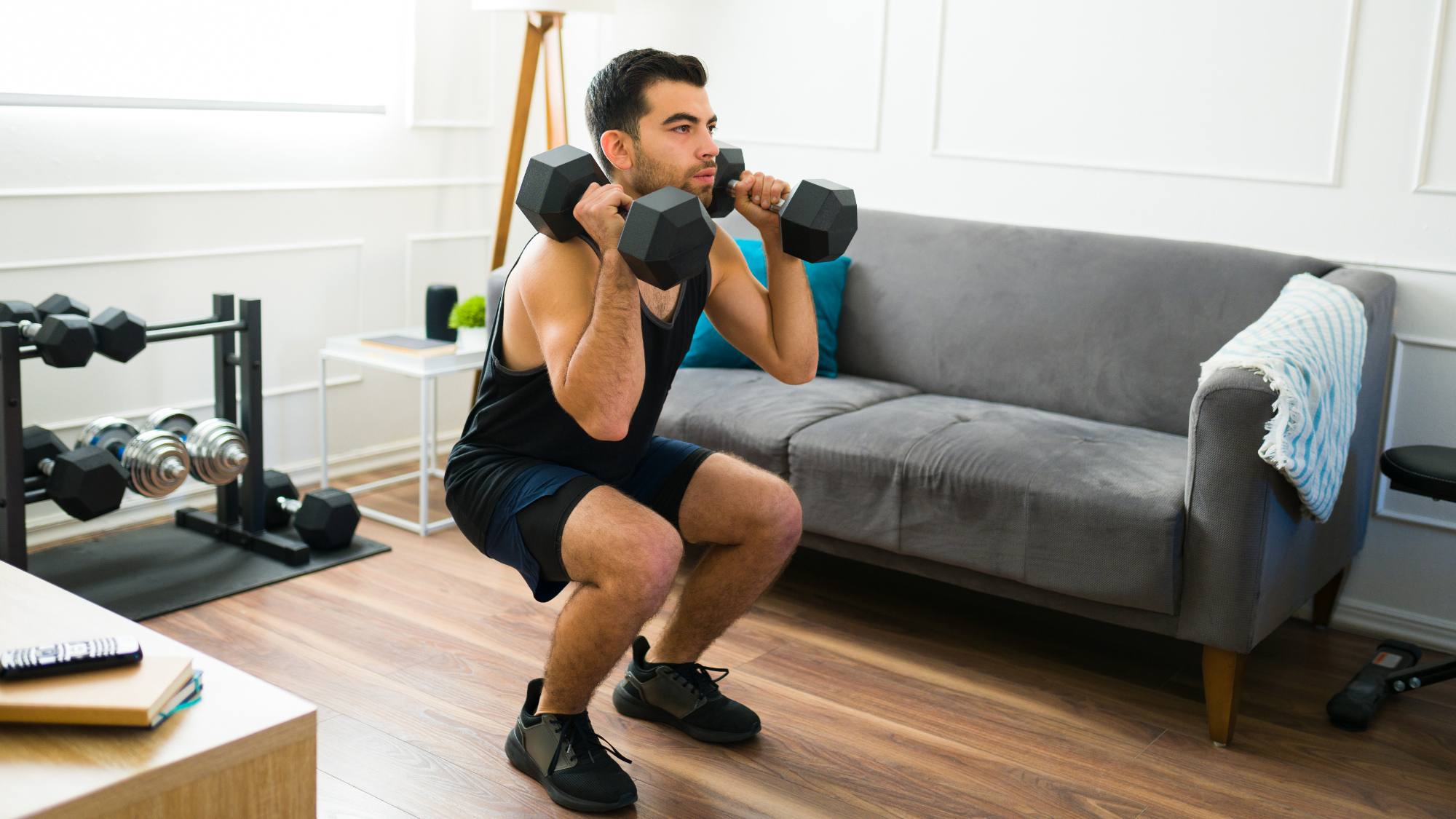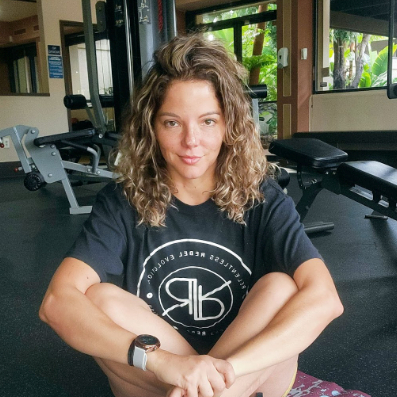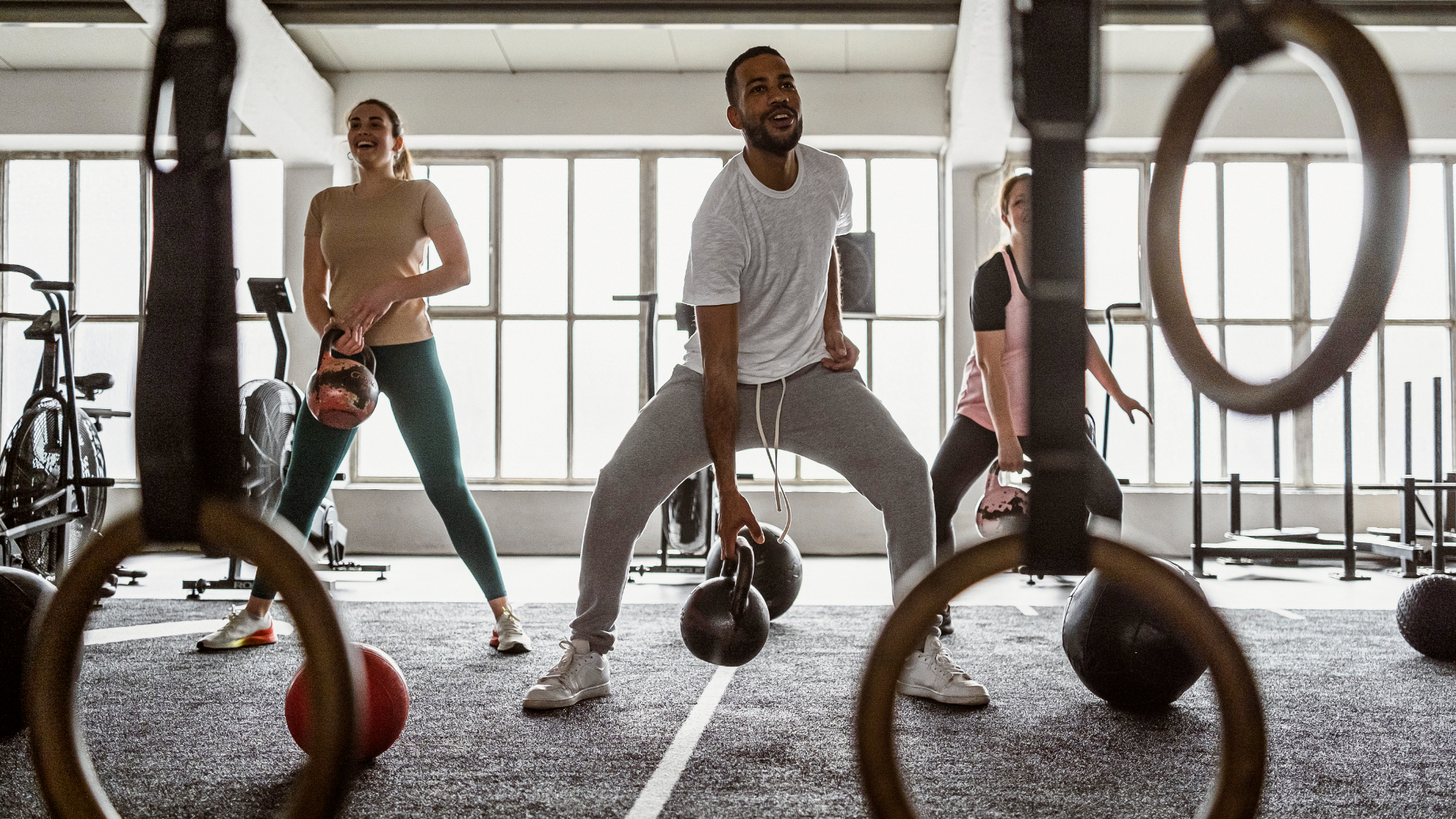Does building muscle burn fat?
We asked two personal trainers whether building muscle burns fat or if you need to stick to your regular cardio workouts


Start your week with achievable workout ideas, health tips and wellbeing advice in your inbox.
You are now subscribed
Your newsletter sign-up was successful
We've all heard that lifting weights builds muscle while cardio is best for burning fat – but is that true? Or does building muscle burn fat?
If you're hoping to change your body composition, rather than focus solely on losing weight, the aim is to change how much fat and muscle you have in your body.
Achieving both goals at the same time can be tricky to balance. Keeping topped up on essential nutrients with the best protein powders for weight loss can help, but that's not the only way.
Cardio is a great way to burn energy, but building muscle can do wonders in the long run because of the way it affects metabolism.
We spoke to personal trainers Ria Trujillo and Kimmy G to find out everything you need to know about whether building muscle burns fat.

Ria Trujillo is a NASM-certified personal trainer, nutrition coach, and certified ACE health and wellness coach in Miami, Florida. She designed the Metamorphosis Online Coaching program and regularly leads women's strength training classes at Iron Fist Gym.
Kimmy G is a NASM-certified personal trainer, specializing in strength and hypertrophy training. She is based in Scottsdale, Arizona, and trains people at Arizona's elite private gym, Strict Vision Athletics.
Does building muscle burn fat?
When you exercise your muscles, it causes tiny tears in the muscle fibers that your body needs to repair, which grows and strengthens the muscle. This process does not burn fat directly.
Similarly, your body doesn't turn fat into muscle, and if you stop training, muscle doesn't turn into fat either. However, strength training does require energy, so it can contribute to fat loss.
Start your week with achievable workout ideas, health tips and wellbeing advice in your inbox.
A muscle-building workout will burn calories (food energy) both at the time and in the hours afterward as your body repairs and builds tissue. And it'll boost your metabolism (the energy you burn throughout the day) in the longer term.
And because muscle tissue is more metabolically active than fat, it requires more energy to maintain, so growing your muscles will make your body burn more calories, even when you're doing nothing.
Personal trainer Kimmy G explains: "The more muscle that you have, the more calories you burn at rest. Over time, that turns your body into a fat-burning machine."
Can you lose weight just by building muscle?

Losing weight is a complex term with many meanings, and weight loss and fat loss are different things. Some people use it to mean lowering the numbers on your bathroom scales, while others imagine it as dropping fat and building lean muscle.
Muscle is denser than fat, so if you want to lose fat but gain the same amount of muscle, you'd weigh more overall. But personal trainer Ria Trujillo explains that your results will also come down to food.
She explains that "weight loss is caused by a sustaining a calorie deficit [eating fewer calories than you use], and usually constitutes fat loss as well as muscle loss."
This means that weight loss could lead to losing — rather than building — muscle. But it is possible to balance the two, you just need to ensure you do the right type of exercise and consume the right nutrients.
"Studies show that it is possible to maintain and sometimes build muscle [on a caloric deficit] by prioritizing protein intake and resistance training (aka lifting heavy things)," she says.
For example, research published in The American Journal of Clincal Nutrition found that blending a high-protein with intense strength workouts promoted muscle growth, even in a calorie deficit.
According to the authors, the resistance training workouts signaled to the participant's bodies that they needed to retain their muscle, and the high protein intake helped repair and strengthen the fibers.
Do bigger muscles burn fat faster?
When it comes to how the size of your muscles affects metabolism, our experts agree: it's about how much, not how big.
Kimmy G says: "I don't want people to think, 'Oh, having big muscles is going to burn my fat.' It does, but in a deeper way. It's not because your muscles are big, but because you have more tissue, [so] you burn more calories at rest."
And if you use techniques like high-intensity resistance training (HIRT), which blends muscle-building exercise with cardio, you'll burn more calories during your training and further boost your metabolism, speeding up the fat-burning process.
You'll need to let your muscles recover between sessions though, but that doesn't mean you have to stop exercising entirely. You could do a HIIT workout for fat loss to raise your heart rate or use an active recovery day workout to help your body repair.
Can building muscle burn belly fat?

Since you can't spot-target fat in specific areas, building muscle has the same effect on belly fat as it does anywhere else on your body. According to Kimmy G, the main aim is to increase your total energy expenditure.
"Building muscle isn't going to specifically spot-treat belly fat; building muscle is going to increase your total energy expenditure, and that — paired with nutrition — drop your total body fat and burn belly fat."
In other words, you can't decide to burn only belly fat, but by burning fat overall, you will reduce your belly fat too. Plus, you can build muscle specifically in your belly.
Kimmy G says: "Part of building muscle is lifting, and as you do heavy lifts, you are bracing your core, which also helps to build a toned stomach." You can also use dedicated core strengthening exercises to work your midsection.
Does building muscle burn fat faster than cardio?
Cardio is often turned to as a fat-burning strategy, but should we turn to resistance training instead? "You're probably going to burn more calories with an hour of cardio than you would doing [weightlifting sets]," says Kimmy G.
"But, once you have that muscle built, you will still have a higher energy expenditure [than someone with less muscle]." Ultimately, "cardio will burn more calories in the moment, but [building muscle will] help you burn more calories at rest."
Trujillo adds that it takes time to build muscle — "about six to eight weeks to [notice] for beginners" — so cardio might be a short-term option. In the longer term, though, building muscle may burn as much fat as cardio.
A review of published studies in the Sports Medicine journal found that those who did resistance training lost a similar amount of fat to people doing cardio alone, even if they lost less weight overall.
According to one of the study's authors, Dr. Mandy Hagstrom, it's best to combine strength training and cardio, but you should "do what exercise you want to do and what you're most likely to stick to."
If you're not keen on regular weight training, you do have other options. Lacing up a pair of the best walking shoes and taking an incline walk can raise your heart rate, boost your metabolism, and sustainably burn fat.
Hatty Willmoth is an experienced journalist specialising in nutrition, health and wellness. As staff writer and communications officer at the Institute for Optimum Nutrition (ION), she has written many articles for their magazine and website. Hatty also has bylines at Time & Leisure magazine, news publication South West Londoner, and Sussex Bylines.
She holds a Gold Standard qualification from the National Council for the Training of Journalists (NCTJ) and a First Class BA degree from Queens’ College, University of Cambridge. She fills her spare time with cooking, yoga, ballet, making videos for her YouTube channel, and the occasional jog.
